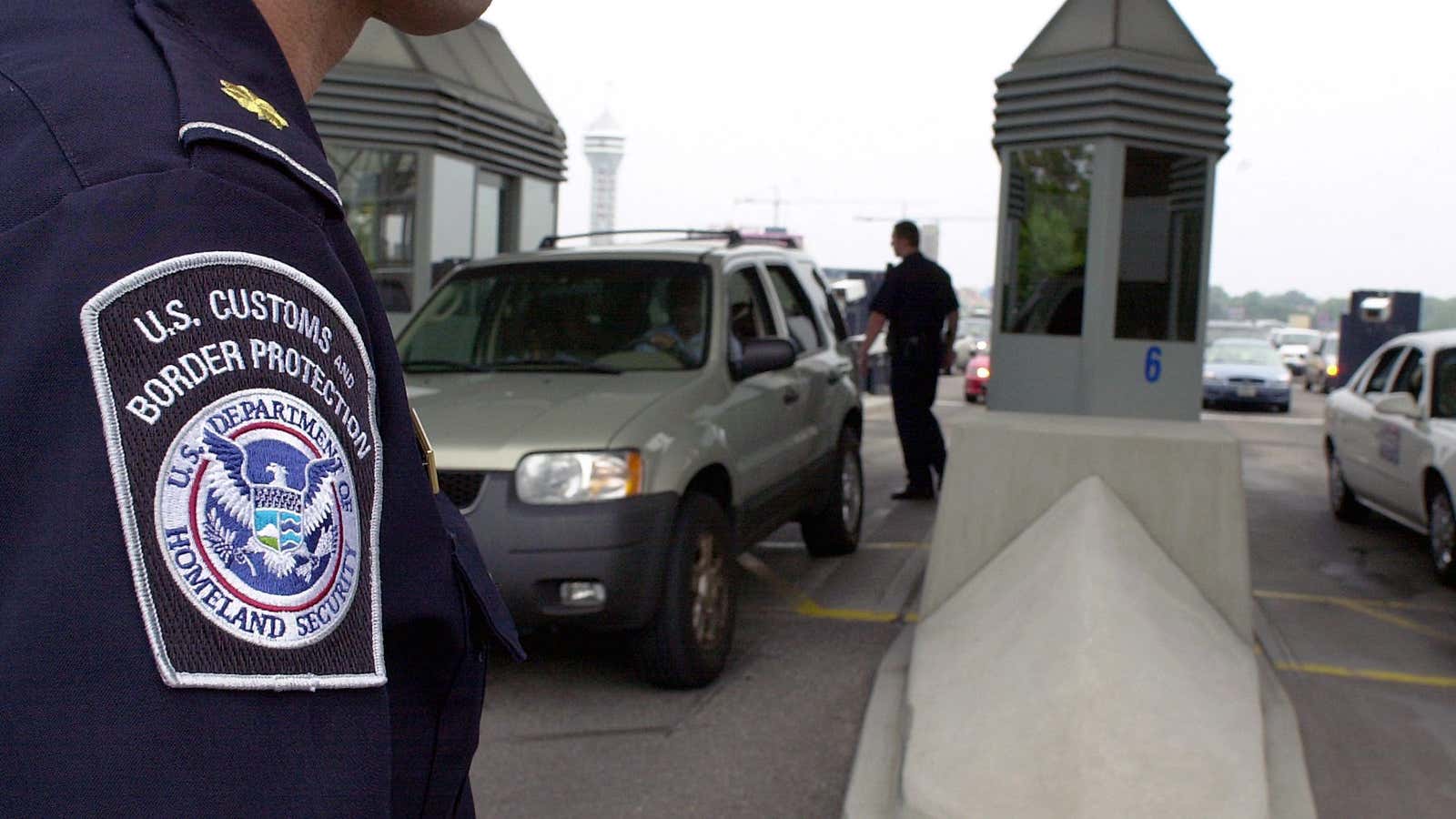Here’s the latest in my fight to gain free access to US government data on who is entering the country. As a reminder, the US Department of Commerce denied my Freedom of Information Act request for the information, instead offering to sell me the data for over $173,000. My lawyers filed documents with the US District Court for the District of Columbia on Oct. 31. laying out five reasons why the judge should grant me free access without holding a hearing.
The filing, known as a motion for summary judgement, is routine in civil suits, and mine provides the most comprehensive and forceful argument for my entitlement to this data yet.
1. The Freedom of Information Act entitles journalists to reduced and waived fees
The law that grants the public access to certain federal records—including the data I’m after—is the Freedom of Information Act (FOIA). That law stipulates that the government can charge fees for copies of the records but certain groups are entitled to reduced fees and/or fee waivers. Journalists, courts have ruled, are entitled to both.
2. The government has abandoned the only argument it used to deny my request
In responding to my requests, the government has used a multitude of rationales for why it shouldn’t be required to grant me free access to the data I seek. During the administrative process the government official in charge of handling my case floated to me in a phone call a number of reasons that he was considering using to deny my request.
In the end, his official reason for denial was that the data I seek is not a government record. That was overturned in an administrative appeal process.
In that appellate decision, the government cited a new justification for denying my request—a law that broadly authorizes the US secretary of commerce to charge for “special” studies and compilations. Confoundingly, in one of their first submissions to the court following the filing of my lawsuit, government lawyers said they were abandoning the special studies rationale because it was made “in error.”
US courts have already ruled that in judicial challenges of fee waivers, only the arguments contained in the administrative record may be considered. Thus, the only justification the court can consider is one the government has already admitted is erroneous.
3. There is no applicable statutory exception authorizing the fees the government wants to charge
Even if the court was to consider the government’s new rationale for forcing me to pay fees of more than $173,000 for the data, it wouldn’t pass muster. There are two sections of law the government now claims exempt this data from FOIA; both reference the the Mutual Educational and Cultural Exchange Act of 1961.
The first says that the Department of Commerce is authorized to collect payment for services authorized by other parts of the Act. The second is a recent budget measure that authorizes the commerce department to collect contributions under the same act for the purpose of participating in and organizing trade fairs and other promotion.
FOIA requires that laws that preempt FOIA fees, must identify ”particular types of records” and “specifically provid[e] for setting the level of fees” for those records. Neither of these sections do that.
4. The government’s argument for why I need to pay is based on a misunderstanding of a key court decision
Let’s pretend for a moment that there was an applicable superseding fee statute and the intention to use that justification was also contained in the administrative decision.
In a filing last month, government lawyers asserted that the case Oglesby v. US Dept. of Army established a precedent for its arguments. However, the decision in that case specifically left open the issue at hand: whether or not a superseding fee statute affects FOIA’s power to waive fees.
“We wish, however, to make it clear that we are in no way ruling on,” the 1996 decision read, whether or not a superseding fee statute “excuses a qualified agency only from FOIA’s fee-setting requirements, and not from the fee-waiver provision.”
In other words, just because the government is required to set fees at a certain level under a law, that doesn’t mean it cannot be compelled to waive those fees under FOIA.
5. The government’s position is contrary to the intention of FOIA
When FOIA was amended in 1986, Congress specifically tried to curtail government practices that were asserting “copyright-like controls.” The data I seek, if I were to buy it directly from the government, would come with such restrictions on it as a condition of sale, despite the data itself having no copyright restrictions as a work of the US government.
Furthermore, the intention of FOIA has always been to allow individuals to inform themselves of the government’s activities. If all it took to hide records from public view was the application of a exorbitant sticker price, the law could be rendered useless.
In fact, a senior official at the Department of Commerce recently noted that the department’s measure of its own progress on data transparency “really comes down to how easy it is for everyone—and I mean everyone—in the country to access public data—and have full and equal access and opportunity to put that data to work.”
I couldn’t agree more.
For a more detailed and legally cited version of these points read the complete filing here (pdf).
